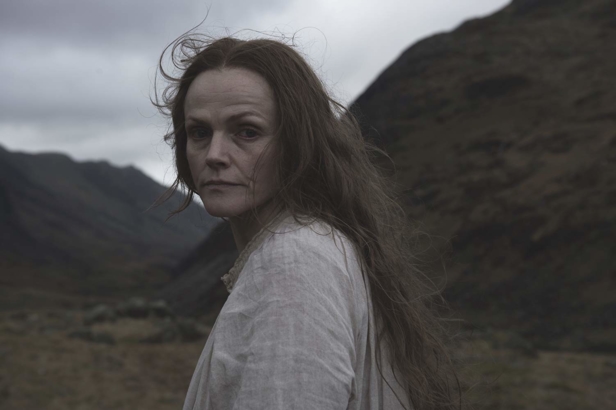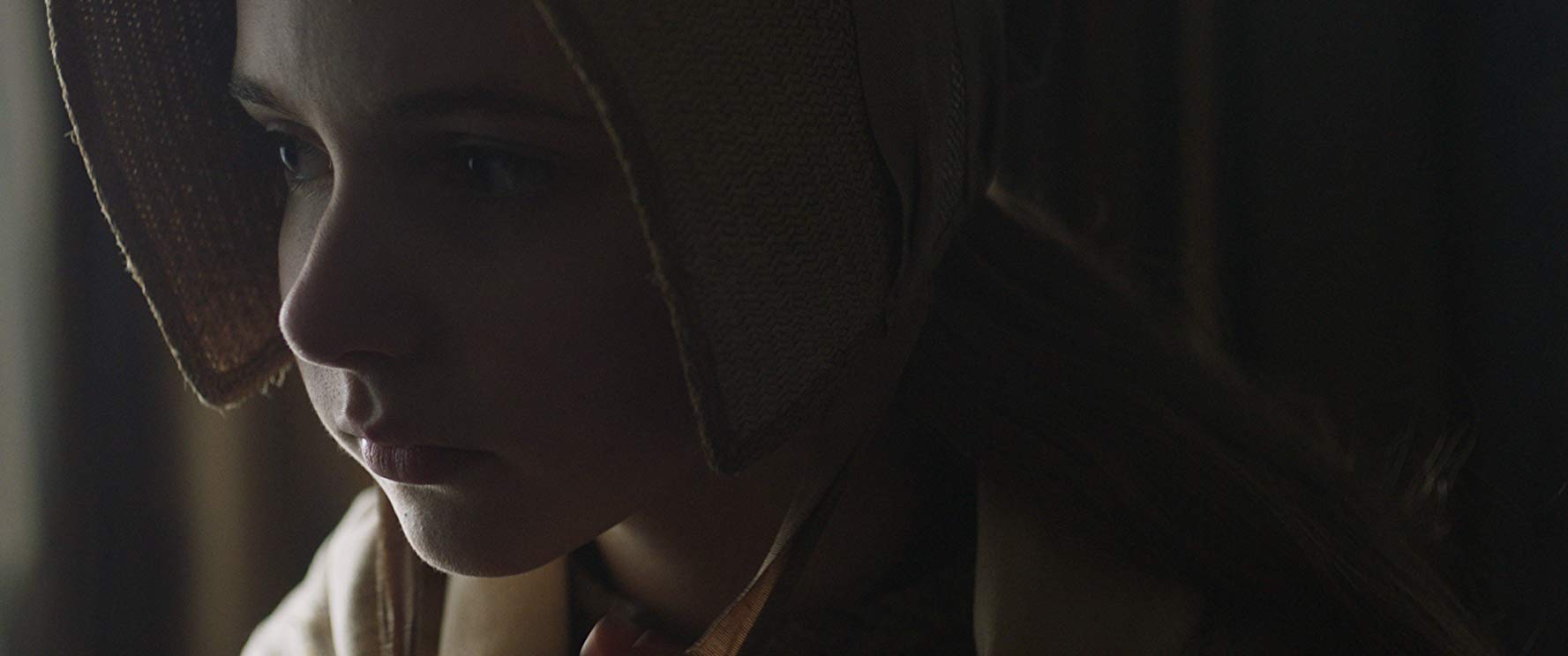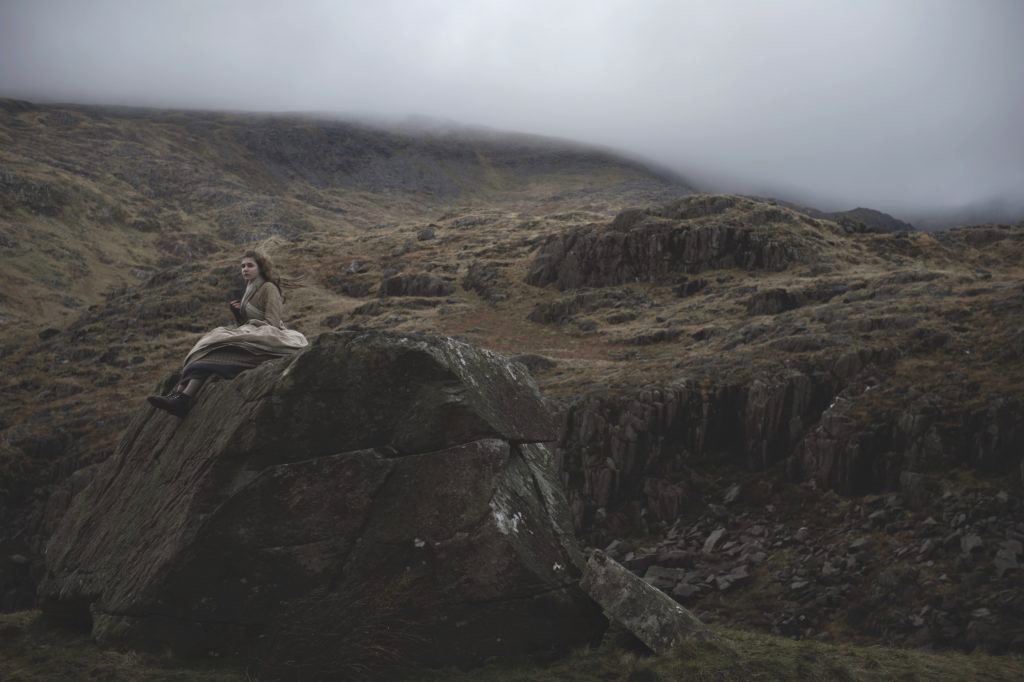Over the last few years, there’s been an exciting new wave of independent British films that use geography and rural locations to exact a political point. In 2017, Hope Dickson Leach’s family drama The Levelling and William Oldroyd’s period drama Lady Macbeth made a huge impact on the festival circuit. They were shortly followed by Michael Pearce’s Jersey-set crime thriller Beast and Clio Barnard’s Brexit parable Dark River in 2018.
First time feature director William McGregor’s Gwen follows in the footsteps of the aforementioned films, but as a brutal, anti-capitalist folk horror it also has a lot in common with Babak Anvari’s Under The Shadow or Robert Egger’s The Witch as it mines social issues for chills.
With Extinction Rebellion knocking down the government’s door with non-violent protest and calling out capitalism’s catastrophic effect on climate change McGregor’s exploration of the Industrial Revolution’s impact on the individual has a timely message, despite being set in 19th Century Snowdonia.
“[Extinction Rebellion] are people who are protesting against industry and capitalism to think a minute and protect the world we live in. I think everyday people can be forgotten and it becomes more about a bigger picture that isn’t thinking the long term about sustainability to an environment or to people’s welfare”, explains McGregor who also states that the political themes of Gwen attracted Maxine Peake to the project.
Peake plays a single mother to two young girls (Jodie Innes and Eleanor Worthington-Cox who plays the titular role), whose mettle is tested as she attempts to ward off venture capitalists from her farmland and teach her daughters how to survive under harsh circumstances. The film is told from the perspective of Gwen who is bewildered by her mother’s behaviour, desperately missing her father and trying her best to make sense of why her local community is disappearing.
“When I was looking at telling this fairy-tale in Snowdonia, I began researching the area and although the story is not 100% accurate there were things in it that inspired it. I read about, how, at that time in Northern Wales it had the lowest number of homeowners anywhere in the country because capitalists would come in and remove people from their homes. Then they would instantly have a workforce and the land to work with. I think that the power of industry to displace people from their traditional way of living, especially in the industrial revolution, meant there was a real change to the landscape. It’s still something we’re going through now.”
McGregor grew up in Norfolk on a farm with his family and became fascinated by his agricultural surroundings, which in turn he says, informed his relationship with nature and culture. He mentions the dark fairy-tales of Angela Carter, and literary icons such as Edgar Allan Poe, Thomas Hardy and Ann Radcliffe as touchstones for his filmmaking.
“I’m instinctually drawn to that type of storytelling… You start to ask yourself why you’re into such macabre stuff but I think everyone’s got a bit of interest in that and there’s something escapist about it as well. You look at Thomas Hardy and Ann Radcliffe’s gothic writing and even Jane Eyre and Rebecca have elements of that in as well and it’s an incredible visual landscape to play in and to indulge yourself in. Landscape itself can be quite sublime and awe-inspiring and epic but it can also be terrifying, especially being alone in a landscape and that isolation. Even things like the wind become a source of horror.”
Much of the horror in the film comes from the natural surroundings but it also taps into Gwen’s uneasy relationship with her mother. As her imagination runs riot with strange and shocking bumps in the night, she must decipher what is real and what is fiction.
“The film is more about how these folklores and mythologies begin in the first place. Just from a real-life incident that could turn into mythology. I wanted to play with this idea that you’re always imagining monsters but they might not be real. It touches on children growing up and realising your parents’ fallibility or that you might have been lied to but it’s for your own good. That’s what a fairy-tale is really, they’re small stories that at a young age you might not understand the scale or impact of. It’s also about how mistrust and suspicion can be manipulated by others and how abuse of power can make Gwen start to see her mother in a certain way…there is something monstrous about her and how she transforms, but part of the story was saying the monsters are the patriarchy.”
From very early on in his career, McGregor has dabbled in dark fairy-tales, sci-fi and horror, so why does he think genre is such a good place to explore social issues? “Not everyone wants to sit down and watch a piece of social realism so horror has a double impact. If it is relevant, it’s all the more terrifying. I love horror and I love being scared but I enjoy tense slow-burn horrors and I really like that long build up where you’re starting to see the idea and to make the audience feel that building dread before that nice big shock. Often there’s an expectation for horror to be jump-scares from the start and classic horror films have more of an impact from the beginning, whereas mine is a slow-burn. I think horror functions on both ends subconsciously and it’s cathartic.”
Horror has never gone away, but there does seem to be more funding available for the genre with films like The Witch and more recently Hereditary making massive waves. “In a way it seems like we are part of a trend but that’s not intentional. I think sometimes trends occur because a film like The Witch will do well and then people like myself are given the opportunity to make films that live in that folklore world. So, there is a cause and effect to it but often it’s more from the financing aspect.”
Gewn is in cinemas from 19 July. Get all the latest horror news with every issue of SciFiNow.


